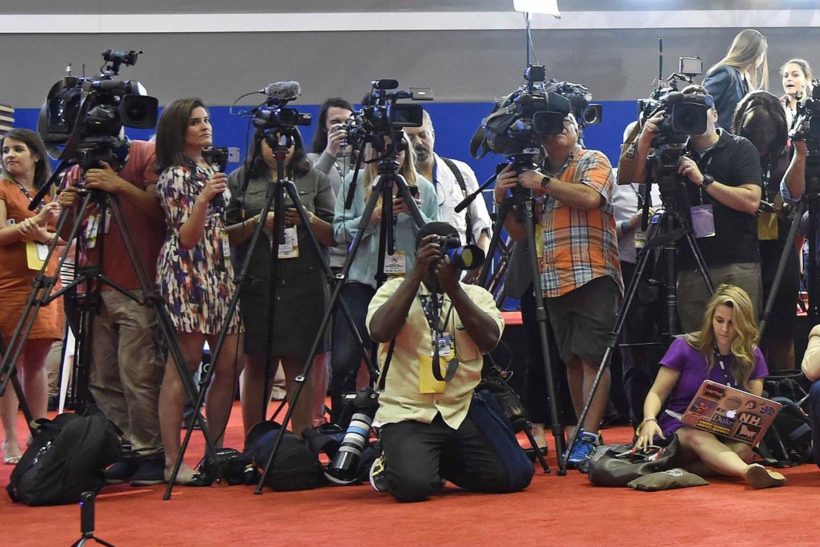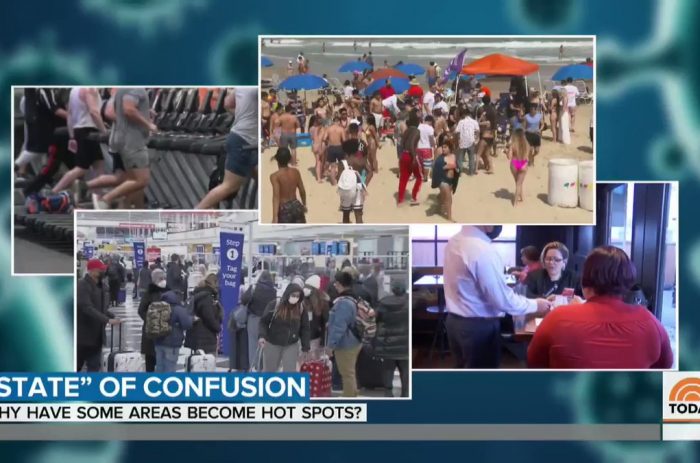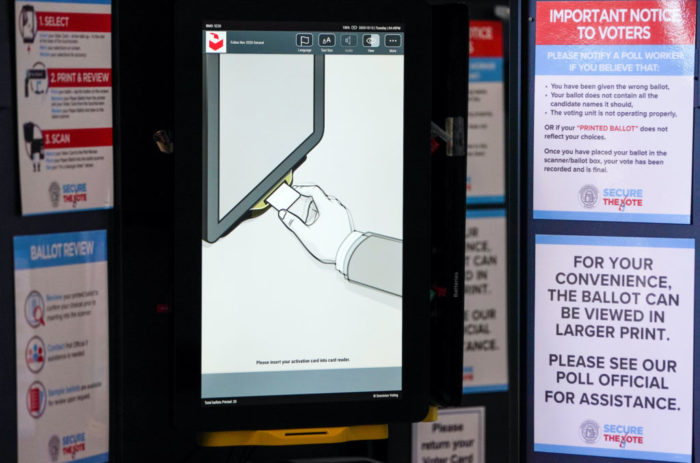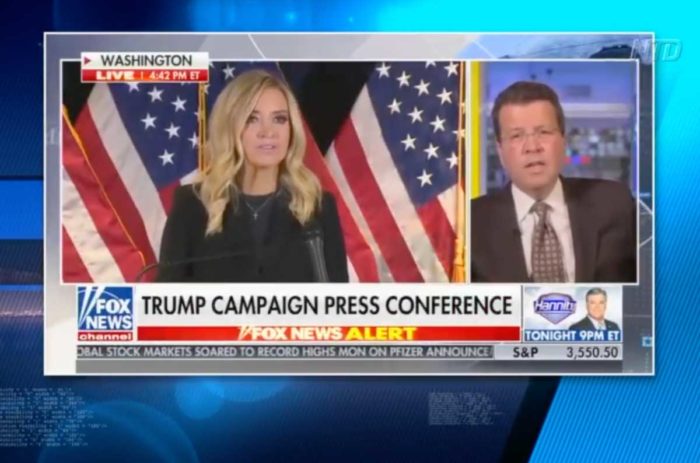
redo Jump to...
print Print...
Example of Media Bias:
Adapted from a post at News Busters by Tim Graham:
The Associated Press (AP) reports the latest bad news for the press: “Just 6 Percent of People Say They Trust the Media.” Carole Feldman and Emily Swanson began:
Trust in the news media is being eroded by perceptions of inaccuracy and bias, fueled in part by Americans’ skepticism about what they read on social media.
Just 6 percent of people say they have a lot of confidence in the media, putting the news industry about equal to Congress and well below the public’s view of other institutions.
The six percent is those with “a lot” of confidence, which doesn’t include everyone who has some degree of confidence. …
The poll comes from…the Media Insight Project, a partnership of The Associated Press-NORC Center for Public Affairs Research and the American Press Institute. They continue:
Nearly 90 percent of Americans say it’s extremely or very important that the media get their facts correct, according to the study. About 4 in 10 say they can remember a specific incident that eroded their confidence in the media, most often one that dealt with accuracy or a perception that it was one-sided.
However, the AP didn’t bring up disgraced TV anchors who were incredibly reckless with facts, from Brian Williams to Dan Rather. There’s a difference between fact-mangling and the more common problem of bias by omission, just refusing to allow viewpoints that media elites consider too politically incorrect, like global-warming “deniers.” That ends up underlining the perception of one-sidedness.
Tom Rosenstiel, a former media reporter for Newsweek and the Los Angeles Times who is now with the American Media Institute, was also quoted:
About 6 in 10 Americans watch, read, or hear news several times a day, as computers, smartphones and tablets make it easier for people to follow the news on an on-demand basis.
A majority of people get news from social media, most frequently by far from Facebook. “Facebook is the place where everyone is, and so you’re not necessarily looking for news, but you’re getting it,” said Rosenstiel.
Yet only 12 percent of those who use Facebook say they have a lot of trust in the news and information they see on the site.
Twitter attracts smaller numbers for news than Facebook, and about 18 percent have a good deal of trust in what they read there. There was also viewer skepticism of other social media sites.
Rosenstiel said people who use social media are “hunting pretty carefully for cues” in deciding whether to click on an item of news to read more. The most important factor in determining trust: whether or not they know the original source of the story.
Surely, the media elites will want to bang their heads on the desks for trying to curate the “news” into social-media effluvia, and then have the audience say that effluvia isn’t trustworthy enough to read.
To accurately identify different types of bias, you should be aware of the issues of the day, and the liberal and conservative perspectives on each issue.
Types of Media Bias:Questions
1. In his report on the AP’s poll, Tim Graham asserts: “There’s a difference between fact-mangling and the more common problem of bias by omission, just refusing to allow viewpoints that media elites consider too politically incorrect… That ends up underlining the perception of one-sidedness.”
a) Do you agree with this assertion? Explain your answer.
b) Ask a parent the same question.
Interesting to note: the large majority of people in the news media are Democrats and/or hold liberal views on most issues. Most people who hold liberal views don’t see the media as biased. Most people who hold conservative views say the news media has a liberal bias. [With the exclusion of Fox News – but there is CNN, CBS, NBC, ABC, MSNBC, NY Times, Washington Post, LA Times, et al.]
2. Tom Rosenstiel, a former media reporter for Newsweek and the Los Angeles Times is quoted as saying:
Yet only 12 percent of those who use Facebook say they have a lot of trust in the news and information they see on the site.
Twitter attracts smaller numbers for news than Facebook, and about 18 percent have a good deal of trust in what they read there. There was also viewer skepticism of other social media sites.
Facebook founder Mark Zuckerberg is known to support the liberal position on social issues and oppose the conservative position. He says he is neither a Democrat or Republican.
Most people are aware that Facebook’s news feed algorithm affects the news they see. Many also believe other social media companies manipulate what they see. Do you think the assumption of these users is unfair, or do you think social media should not be trusted for balanced news? Explain your answer.
Scroll down to the bottom of the page for the answers.
Answers
1. and 2. Opinion questions. Answers vary.



